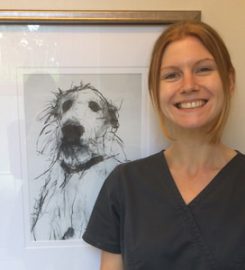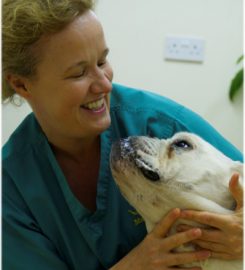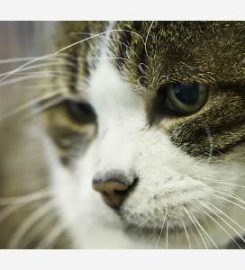Viking Veterinary Surgeons
Microchipping
We can microchip your pet at one of our nurse or vet appointments. The microchip is inserted via an injection into the area of skin over your pet’s shoulder blades. The whole process is very quick and relatively painless. It is very similar to when your pet has their vaccination injection, although the needle is slightly bigger. Of course there is bound to be a little discomfort but the majority of pets show little or no reaction. Once the microchip is inserted, we request that you do not stroke your pet over the area in which it was placed. This is only for the first 24-48 hours to reduce the chance of the chip becoming dislodged or migrating.
Vaccinations
Vaccination of your pet is an essential part of their health care and provides protection against a variety of diseases. Young animals will often require a primary course of vaccines with an interval between injections to provide immunity. Ongoing protection is essential and an annual vaccine is required to provide continuous immunity. This yearly booster forms part of the annual health check.
Dog vaccines
The primary course for puppies and the ongoing annual booster provides protection for the following diseases.
Distemper causes listlessness, fever, coughing, diarrhoea and vomiting. Convulsions and paralysis may also occur in the final stages. This disease is often fatal. It is highly contagious and is spread by discharge from the nose and eyes of infected dogs. The distemper virus attacks many organs, including the nervous system, which may cause permanent damage if the dog recovers.
Infectious Canine Hepatitis symptoms are similar to those of early stage distemper, causing liver failure, eye damage and breathing problems. The disease is transmitted via bodily secretions such as urine, faeces and saliva.
Parvo Virus is a very contagious and widespread disease. Spread through infected faeces, this highly resistant virus can remain in the environment for many months. Symptoms include diarrhoea and vomiting (usually haemorrhagic), listlessness and high fever. The disease is severe in young puppies and often fatal.
Leptospirosis is a bacterial disease which attacks the liver and kidneys. It is transmitted via contact with water contaminated with infected urine. Symptoms are variable and may include vomiting, lethargy and abdominal pain.
Additional vaccines for dogs are available and are administered on an individual basis according to requirement.
Rabies has been eliminated from the UK, vaccination is only indicated if you are planning to take your dog abroad.
Kennel cough is a highly contagious disease of the dog’s respiratory tract. Dogs of all ages can be affected and signs include a harsh, dry, convulsive cough. It is passed from dog to dog via airborne droplets and by direct nose to nose contact.
Cat Vaccines
The primary course for kittens and the ongoing annual booster provides protection for the following diseases.
Feline Herpes is one of the viruses that causes ‘cat flu’, it usually causes respiratory symptoms (e.g. sneezing) or eye infections, these will often re-occur throughout the cat’s life.
Calici Virus is the other virus often associated with ‘cat flu’. It will often cause oral ulceration and gingivitis (inflammation of the gums).
Feline Enteritis or Feline Panleukopaenia is a severe gastrointestinal infection causing extreme vomiting and diarrhoea. Feline enteritis is often fatal if not treated early.
Feline Leukaemia virus causes the cat’s immune system to become weakened leaving it vulnerable to a number of diseases, including anaemia and cancer. There is no cure for this virus and the diseases caused are often fatal.
Rabbit Vaccines
The vaccination for rabbits provides protection for the following diseases.
Myxomatosis is a severe viral disease spread by biting insects such as fleas and mosquitoes. Symptoms include weepy, puffy eyes leading to blindness, thick discharge from the nose, puffy fluid filled swellings around the head, face and genitals. Rabbits also become anorexic, depressed and death usually results within 12 days.
Rabbit Haemorrhagic Disease (RHD) is a fatal virus spread by direct contact between infected rabbits (both wild and domesticated) as well as indirect contact by fleas, people and even on your clothing. Symptoms include fever, anorexia, paralysis and seizures, internal bleeding leads to organ failure and death 1-2 days later. Some rabbits may not show any outward signs of the disease.
Pet Exports
Any animal wishing to travel to a country that is not recognised under the PETS travel scheme will be classed as an ‘export’. This usually involves strict guidelines over vaccination protocols, waiting periods, blood tests and quarantine times. DEFRA will supply you with the information required and provide us with the paperwork to complete. This can be a very confusing and daunting experience for clients. Our vets have extensive experience in exporting dogs and cats to countries as far as Australia. We are on hand to help guide you through the process and with all our vets registered as official veterinarians we can ensure that planning your trip runs as smoothly as possible.
Ultrasound
Ultrasound is a method of looking at the internal ‘soft tissue’ organs of the body. It is a non-invasive means of visualising organs such as the heart, spleen, liver, kidneys and bladder. Ultrasound uses sound waves to create an image. Ultrasound has been a great advance in veterinary medicine as it allows us to visualise the abdominal contents without surgery.
During an ultrasound scan, the patient is placed on a table and gently held. An ultrasound probe, which looks a bit like a microphone, is held against the part of the body being imaged. The probe transmits and receives ultrasound waves, and a computer then analyses the waves and builds up a picture of the parts of the body that are being investigated. This examination is often performed conscious, although a mild sedation may be indicated if your pet is anxious or wriggly.
Ultrasound waves do not pass through air and, because of this, the patient must be prepared carefully for the examination. The patient’s hair must be clipped in the region that is being examined, and a gel is applied to both the skin and the probe, to ensure good contact between them.
Advanced Ultrasonography – In addition to the practice ultrasound, we are very fortunate to have a visiting specialist, Maggs Costello MVB, DVR, Dip.ECVDI, MRCVS. RCVS and European Specialist in Diagnostic Imaging. This allows a specialist scan to be performed at the practice without the need for travelling. Maggs’ advanced skills and ultrasound equipment give a greater picture of the internal organs and enables the collection of biopsies or samples if required.
Dental
We offer a full range of dental treatments for your pet. We have a dedicated room to house our dental suite. A specialised table is situated in the centre of the room to allow your pet to remain warm and comfortable throughout the anaesthetic but with a drainage system to reduce the risk of water being inhaled during the procedure. Our pressurised air-driven dental unit provides an ultrasonic scaler to remove plaque, a high-speed burr to aid tooth extraction and a polishing unit to smooth the surface of the tooth. We are also able to radiograph certain teeth to check the root integrity and a large range of hand-held instruments allow the safe examination and extraction of non-viable teeth.Achieving a higher level of oral hygiene in our pets often requires implementing home-care measures. We offer free, regular dental clinics with our qualified dental nurse to help support and maintain your pet’s oral health. We are always happy to discuss any dental procedure in full, explaining the estimated costs and aftercare prior to any work undertaken.
FAQs
thevets@vikingvets.com





